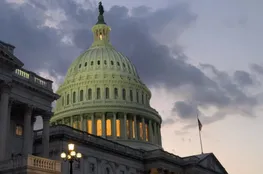When Republican candidate Donald Trump announced his plans to impose tariffs of 60% or higher on Chinese imports, it sent ripples of concern through China's manufacturing sector. Li Wei, who heads Hebei Yiyue Glass Products, a successful export business based in Cangzhou, China, knows firsthand the potential impact. With the US being the main destination for 80% of his exports, such tariffs threaten the very foundation of his company. Since hearing of Trump’s proposals, Li has been relentlessly seeking alternative markets but has found little success in replacing the massive demand from the United States.
This unease is shared by many within China’s manufacturing scene. Gary Ng, a senior economist at Natixis in Hong Kong, warns that tariffs at such high levels would strip many Chinese manufacturers of profitability in the US, adding tremendous pressure on those highly reliant on the American market. Dong Sion, sales manager at Sotech, a leader in electronic components in Shanghai, fears the US business might collapse under the new tariffs, necessitating staff cuts.
Allan Von Mehren from Danske Bank suggests that this development could be the tipping point for many already struggling Chinese companies, given China's key economic reliance on the US market, worth over $400 billion annually. The expected GDP reduction by 2.5 percentage points due to compounding tariffs would exacerbate existing economic challenges in China, including a faltering property sector and tepid consumer confidence. Young professionals like Lily Wang, an employee at Li's glass-making company, fear the combination of new tariffs and the shaky economy could lead to job losses and worsening work environments.
The ability of companies to adapt to these challenges could determine the extent of economic strain. While some companies consider diversifying exports or rerouting production through nations like Indonesia, the Chinese government is actively working to establish new markets. Recently, China hosted a forum with 50 African nations aiming to increase imports of Chinese products, reflecting strategic moves towards friendlier trade partners. However, the issue remains complex, as US trade actions often inspire similar responses globally, including from the European Union and other countries.
This has already created barriers for Chinese goods, like electric vehicles, in key markets. Trump has hinted at possible tariffs on Mexico, adding to the uncertainty over just how Chinese companies can navigate these hurdles. The situation is further complicated by retaliatory measures from China, already investigating tariffs on European goods and Canadian exports and restricting element exports vital to technology industries. Domestically and abroad, the implications of Trump’s tariff plans are profound.
Analysis by the Peterson Institute suggests that US consumers could face increased inflation and a GDP decline, especially in the event of retaliatory measures from Beijing. Diplomatic voices warn against the spirals of protectionism, emphasizing the importance of stable trade practices. Li Wei, like many Chinese manufacturers, encapsulates the looming dilemma, recognizing the challenges faced by consumers and workers alike. Despite his efforts and concerns, he echoes the sentiment that those in positions of power may carry on with their agendas, leaving businesses like his to adapt, survive, or pay the price.
























